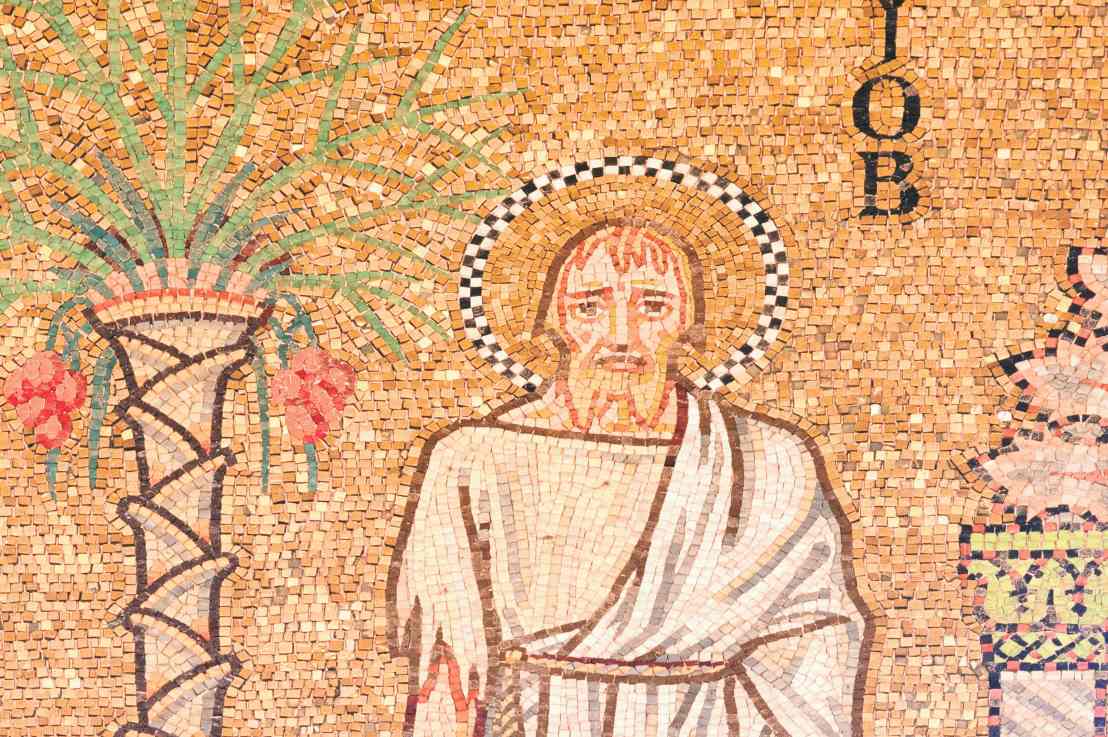The Old Testament includes a story about a good foreigner named Job, who persevered through great trials. It’s a story about why God allows suffering – and the need to keep faith in difficult times.
The book of Job begins with God giving Satan permission to test Job’s faith and patience. The Devil then resolved to destroy his loyalty to God by causing him to lose his health, his wealth and his family.
And so his sufferings began. His servants were murdered by raiders, his flocks were stolen by bandits, and then his ten children died when a strong wind struck the house they were in. Not only that, painful sores broke out all over Job’s body.
Despite all of his sufferings, the grieving Job refused to criticise God. Instead, he said: “The Lord gave, and the Lord has taken away; blessed be the name of the Lord.” Even his wife advised him to curse God and die, but Job responded, “If we accept good things from God, should we not be willing to accept sorrows as well?” (Job 1:20; 2:10)
Three friends came to comfort Job in his suffering, but their attempts to console him were not helpful. They suggested that his misfortunes were the result of his sins. Job defended himself, arguing that he had been a good person and did not deserve such hardships. But they continued with their negative comments, which only made him feel worse.
In the end, God spoke to Job amidst a storm, to respond to his questions about his trials. God reminded him of the limits of human understanding and of the overall order in the universe. He also said that Job, not his friends, had spoken the truth. Afterwards, Job’s life finally took a turn for the better. Having passed the test, God restored his fortunes.
Pope Benedict XVI said: “Christians know well that the Lord is present and listens, even in the darkness of pain, rejection and loneliness. In the Bible Job’s experience is particularly significant in this regard. In a short time this man lost everything: relatives, possessions, friends and health. It truly seems that God’s attitude to him was one of abandonment, of total silence.”
He went on: “Yet in his relationship with God, Job speaks to God, cries out to God; in his prayers, in spite of all, he keeps his faith intact, and in the end, discovers the value of his experience and of God’s silence. And thus he can finally conclude, addressing the Creator: “I had heard of you by the hearing of the ear, but now my eye sees you” (Job 42:5): almost all of us know God only through hearsay and the more open we are to his silence and to our own silence, the more we truly begin to know him.”
This mosaic image of Job is found within the church of Sacred Heart and St Catherine of Alexandria in Droitwich. This wonder of a church is decorated with mosaics picturing scenes from the Bible and the lives of the saints. They were designed by Gabriel Pippet and then created between 1922-1932 by Maurice Josey and Fred Oates.
See the full image:

Where to find this work of art
Sacred Heart and St Catherine of Alexandria, Droitwich
Read the relevant passage
Job 1:1-2:10
On a similar theme
- From the Old Testament: The mosaic scheme pairs Job with the Prophet Isaiah, who wrote about the coming of a Suffering Servant.
- From the New Testament: In his letter, St James described Job as a role model of perseverance (James 5:11).
